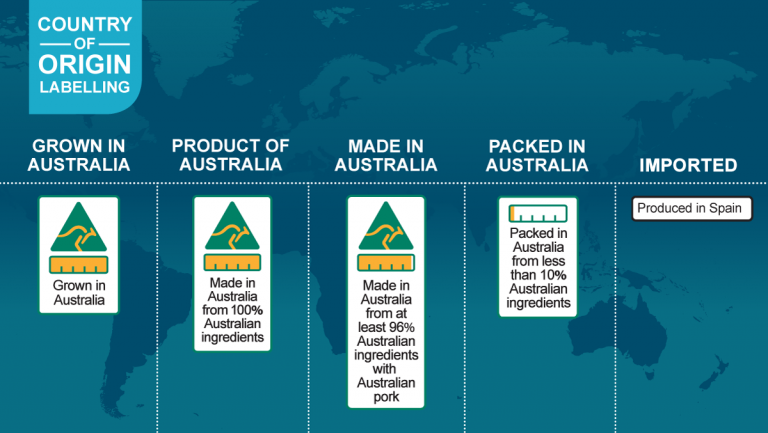
- Print this page
- Download as PDF
- Share this page

What is country of origin labelling?
Country of origin labelling tells us the country, or countries, where a food is grown, manufactured or packaged.
All packaged food must state whether it was made from imported or local produce, or a mixture of both.
Some unpackaged food, including fresh and processed fish, pork, beef, sheep and chicken mince, fruit and vegetables, must also display a country of origin label.
These labels can only be used if the key ingredients in the food originated in Australia and the food is manufactured in Australia:
- Product of Australia
- Produced in Australia
- Produce of Australia
These labels can only be used if the food has been significantly changed or processed in Australia and at least 50% of the cost of production has been incurred in Australia:
- Made in Australia
- Manufactured in Australia
Country of origin labelling is administered under Australian Consumer Law and is not a requirement under the Food Standards Code.
For more information on country of origin labelling, visit the Australian Competition & Consumer Commission website.
Seafood labelling in hospitality
The Australian Government’s Department of Industry, Science and Resources is preparing to introduce mandatory country of origin labelling for seafood in hospitality settings (seafood CoOL) under Australian Consumer Law.
In March and April 2025, the Department consulted on the draft information standard and explanatory statement it proposed to use to introduce the changes.
Businesses do not need to do anything yet.
For more information visit the Department of Industry, Science and Resources website.
